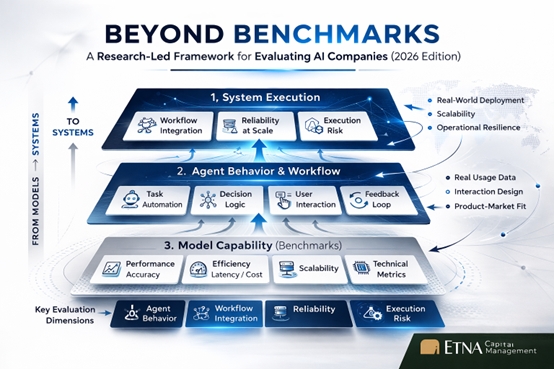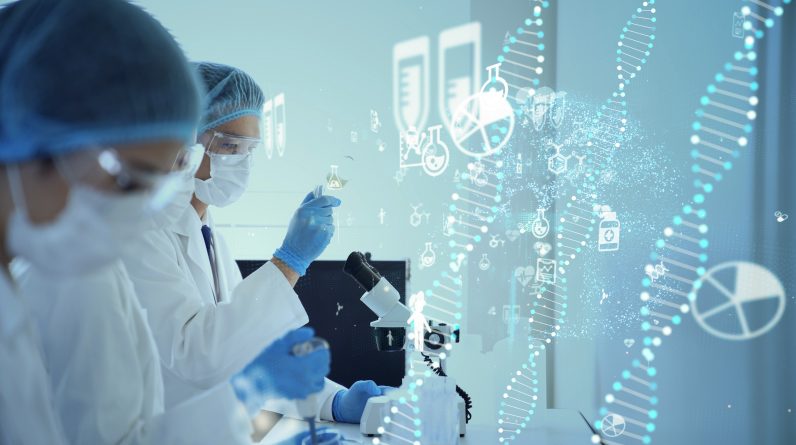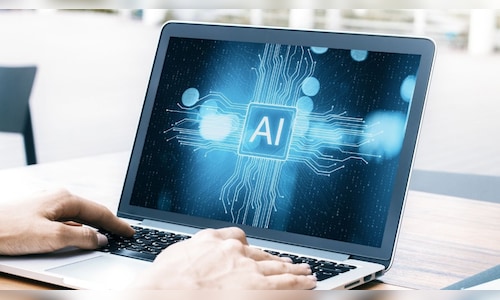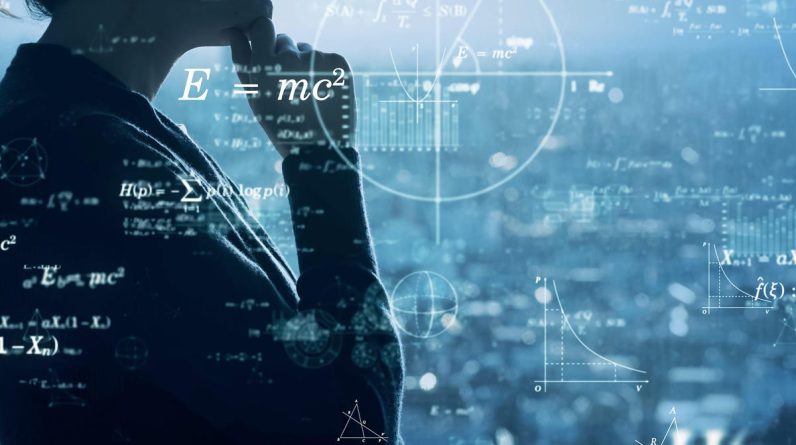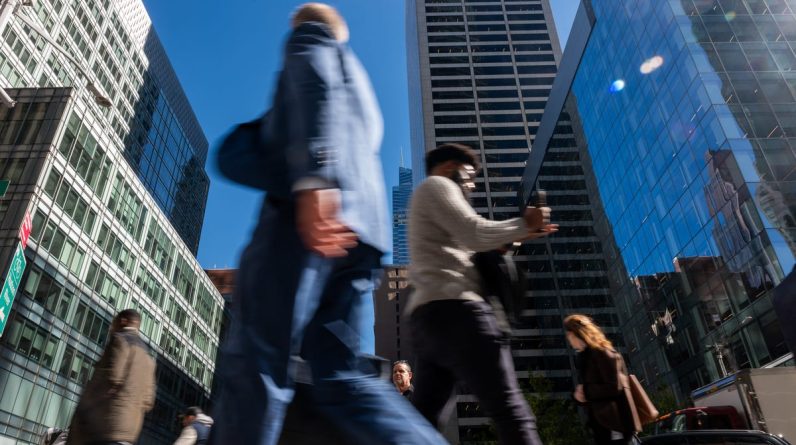
Is your job under threat from AI? Here’s what we know now
USA TODAY’s Money reporter, Rachel Barber, looks at the impact AI is having on the job market in the U.S.
As the job market cools and companies announce layoffs or drops in hiring tied to artificial intelligence, Americans are asking a familiar but urgent question: Is automation coming for their jobs?
Once confined to routine and administrative tasks, AI can read medical scans, develop software, and take on projects that used to require a human touch. Amazon confirmed Oct. 28 that it would cut 14,000 corporate jobs, citing an announcement from earlier this year that said the company expected to reduce its workforce as it implements generative AI and agents that “should change the way our work is done.”
Leaders at companies like Salesforce have made similar announcements this year. Federal Reserve Chair Jerome Powell said the trend is something policymakers are watching closely.
“You see a significant number of companies either announcing that they are not going to be doing much hiring, or actually doing layoffs, and much of the time, they’re talking about AI,” Powell said Oct. 29. “We don’t really see it in the initial claims data yet. Now, it’s not a surprise that we don’t. It takes some time for it to get in there.”
It wouldn’t be the first time innovation reshaped the workforce. More than 100 years ago, the United States shifted from an agrarian to an industrial economy. A similarly large transformation, from an industrial to a digital economy, is taking place now, according to Darrell West, a Brookings Institution senior fellow at the Center for Technology Innovation.
Are companies using AI to replace human workers?
While it’s difficult to pinpoint exactly how much AI is driving layoffs or drops in hiring, signs of its growing impact are hard to miss.
From Klarna CEO Sebastian Siemiatkowski in May telling CNBC the Swedish fintech company reduced its workforce by 40% to Ford CEO Jim Farley in June saying AI will “replace literally half of all white-collar workers in the U.S,” AI is making its mark on the U.S. workforce.
Max Leaming, ManpowerGroup’s head of data science and AI solutions, pointed out one of the first areas affected by AI is software development. It’s not a surprise, he said. It could make sense that AI is learning to do some of the work done by the people it interacts with most.
Leaming is keeping an eye on Project Mercury, an internal initiative at OpenAI Bloomberg uncovered and found had hired investment bankers to train AI for financial modeling and analysis — things typically done by early-career workers. Leaming said there may be broader implications if this plan works, and the pattern spreads.
“Who replaces these managers? If you’re not hiring entry-level people into these technical roles, who is learning those roles to fill the management position somewhere down the road? I don’t know the answer to that,” he said.
How many jobs are at risk?
An October Yale Budget Lab study found the broader labor market has not experienced “a discernible disruption” since ChatGPT’s release, noting that widespread technological impacts are typically felt over decades, not months or years.
A recent survey highlighted by The Federal Reserve Bank of New York found only 1% of service firms reported they have let workers go due to AI in the last six months, down from 10% in last year’s survey. However, 13% said they anticipate layoffs in the next half-year.
If AI is widely adopted, an August Goldman Sachs report estimated 6% to 7% of U.S. workers could lose their jobs.
Earlier this year, a World Economic Forum report estimated that new technology, alongside other economic and demographic trends, will create 170 million jobs and displace 92 million others by 2030.
“Any efficiency that displaces workers was temporary,” Leaming said of past technological revolutions. “If we wind up with a permanent state of displaced, disenfranchised workers with AI, it’ll be the first time in human history that has happened.”
A smooth transition isn’t guaranteed
Some experts believe AI will create enough new roles to offset job losses, but that could depend on how policymakers and employers react now. Walmart CEO Doug McMillion, speaking at a Harvard Business Review event, said AI will create as many jobs as it replaces if workers are effectively trained, according to Axios.
“This is a system-wide transformation that’s going to affect large numbers of people,” West said. “In the past, when we’ve had big economic changes, there have been programs to help people make the transition and to get them the skills that they’re going to need in order to qualify for new jobs.”
Daron Acemoglu, a professor at the Massachusetts Institute of Technology and 2024 recipient of the Nobel Prize in Economics, said society generally has two paths forward regarding AI. If companies largely use the technology to automate work, he expects there will be fewer jobs.
“I’m not predicting a job apocalypse in the next year or five years,” Acemoglu said. “But if AI pervasively goes into an automation direction, there will be fewer jobs. There’ll be some job creation, but not enough.”
But if companies embrace pro-worker AI, designed to complement humans and empower employees, he said the technology, alongside retraining, could provide a boost to real wages, and “even limit the extent of inequality.”
What jobs are most and least at risk due to AI?
A report from the National Science Association and the Gerald Huff Fund for Humanity found AI is expected to disrupt about 25% of all jobs in the next three years.
“However, this figure is somewhat misleading, as certain industries and jobs within them are likely to face more substantial job loss due to automation and AI implementation than others,” the report says.
It identified five industries most likely to experience a displacement of workers, as they rely heavily on technological skills. Those sectors were: wholesale trade; retail trade; finance and insurance; educational services; and real estate, rental and leasing.
It also identified five industries least likely to be impacted by AI, as they require more human judgment or manual dexterity. They are: management of companies and enterprises; mining, quarrying, and oil and gas extraction; government; agriculture, forestry, fishing and hunting; and administrative and support services.
While AI can already fill in spreadsheets, it can’t grab coffee with a friend of a friend and strike up a business partnership. Leaming said workers should lean into their humanity and personal relationships if they want to bring their companies value.
“People who tend to grow their careers like that are of a certain personality type. They tend to be more social,” Leaming said. “But I think that’s the real protection against AI taking your job.”
Reach Rachel Barber at rbarber@usatoday.com and follow her on X @rachelbarber_



